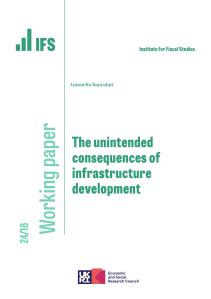Yesterday’s budget included a rather odd set of changes to the public finance forecasts. It looks as if we are set to borrow a cool £16 billion less during this financial year than was projected in November. That is a big change to the forecasts over such a short period for the financial year about to end. It is a far bigger change than any previously made by the Office for Budget Responsibility between November and March to borrowing forecasts.
The improvement doesn’t last, however. Forecasts for the next few years essentially are unchanged. How can that be? A large part of the answer is that there has been a series of one-off changes. Our payments to the EU happen to be loaded more into the period after, rather than before, April than is usual. That helps this year’s numbers but makes next year’s worse. It also looks as if some government departments will underspend their budgets by more than usual this year.
And there has been one windfall that tells us quite a lot about how the tax system works.
George Osborne announced earlier in this parliament a change to the taxation of dividends, which raised the rate of tax by 7.5 per cent while introducing a tax-free allowance — the same allowance that Philip Hammond more than halved yesterday. The effect was to increase substantially the tax payable by those with a lot of dividend income.
The announcement was made in July 2015. The change came into effect only last April, giving people plenty of time to manage their affairs. A clear incentive was created to take dividend payments earlier, in 2015-16 to avoid the higher rate in 2016-17. HMRC estimates that nearly £11 billion of dividend income was taken earlier than would normally have been the case, based on self-assessment returns received in January.
It looks as if the Treasury gained £4 billion of revenue this year from dividend payments made early to avoid the increase in tax. The OBR expects receipts to fall by nearly £5 billion next year as far smaller amounts than usual will be taken in dividends during this financial year.
Taxpayers saved themselves £800 million by taking dividends early. Remarkably, HMRC estimates that more than £100 million of that tax saving was enjoyed by only 100 people, who were able to withdraw dividends averaging £30 million each from their companies before the higher tax rate took effect.
That tells us three important things. First, people really do respond to incentives created by the tax system where they can. Second, a small number of people pay a very large amount of tax (and we are quite dependent on them to keep doing so). And third, there are some seriously wealthy people out there.
Paul Johnson is director of the Institute for Fiscal Studies. Follow him @PJTheEconomist.
This article was first published in The Times and was reproduced here with full permission.








